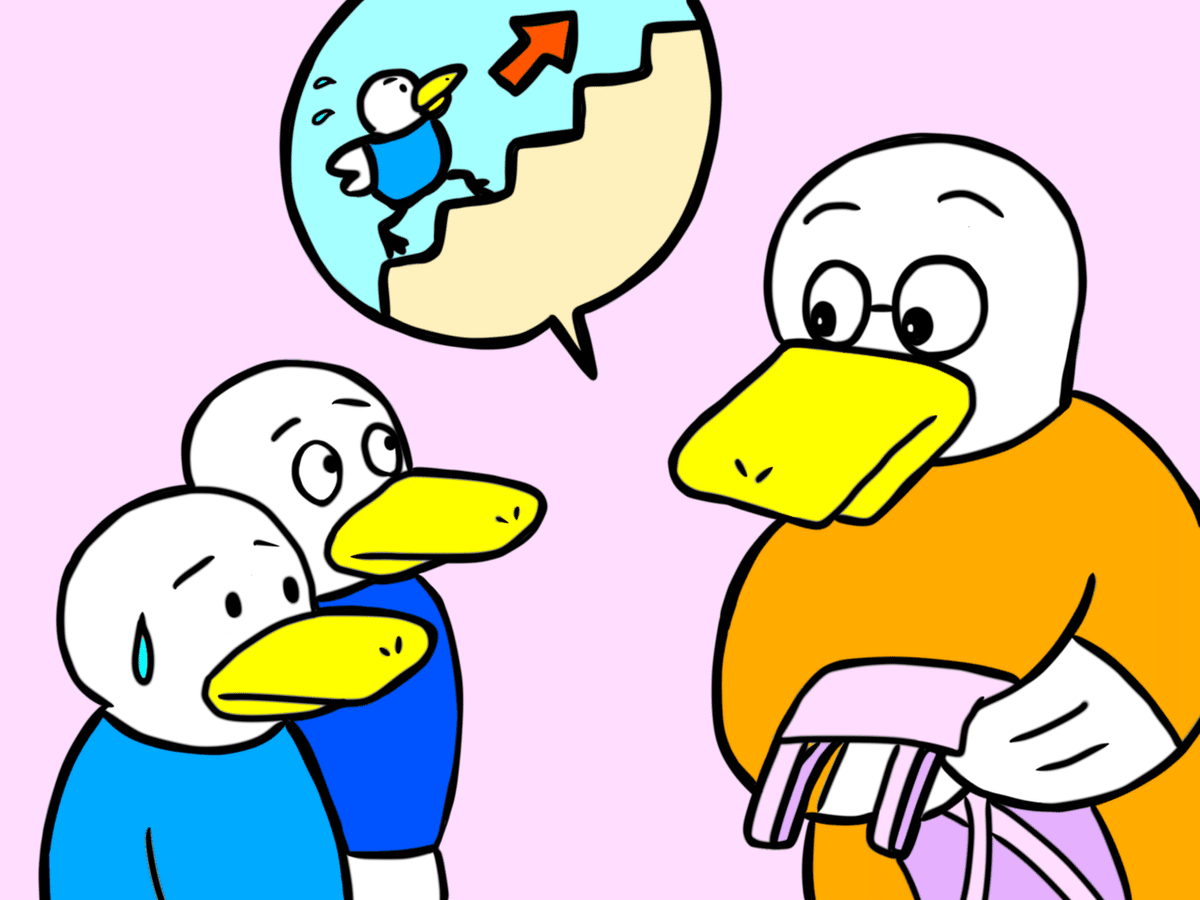
Quarrel between Siblings

The Duck was doing his homework with his younger brother.
He peered into brother’s notebook and found a miscalculation.
He said in a cold tone,
“Here, a calculation error. How many times do you repeat?”

The brother said,
“Noisy! Can you say that you will never make a mistake!?”
The Duck was overwhelmed.
“Of course not, but you could have chosen a different attitude….”

They talked nothing since then, and it filled with uncomfortable atmosphere at the dinner time.
The mother asked,
“What is going on? Did you have an argument?”
The Duck explained.

The mother said to her little son,
“You got angered when Duck pointed your mistake, but it was not a good way. It is important to look at your fault and be careful never to do that again.”
The Duck said,
“I’m sorry for making you resent by my way of speaking.”
The brother said,
“Sorry. I was irritated with myself who repeat same mistakes. I will try to stay calm.”

The comfortable dinner time came back to the Duck’s home.
Commentary
The Duck’s young brother refuted that the Duck could make a same kind of mistakes instead of appreciating him when the Duck has told a miscalculation. This is a fallacy called “tu-quoque” which people answer the criticism by blaming a opponent in the same point.
The Duck was blunt a little when he spoke to the brother, and it could be a trigger of making him angry. This is called “Dr. Fox effect” which people affected stronger by non-verbal message such as gestures, expressions, and so on than the contents of speaking. So, even if it is true and correct what you say, you cannot persuade people without enough non-verbal message.
Reference
Tu-quoque
Dr.Fox effect
この記事が気に入ったらサポートをしてみませんか?
